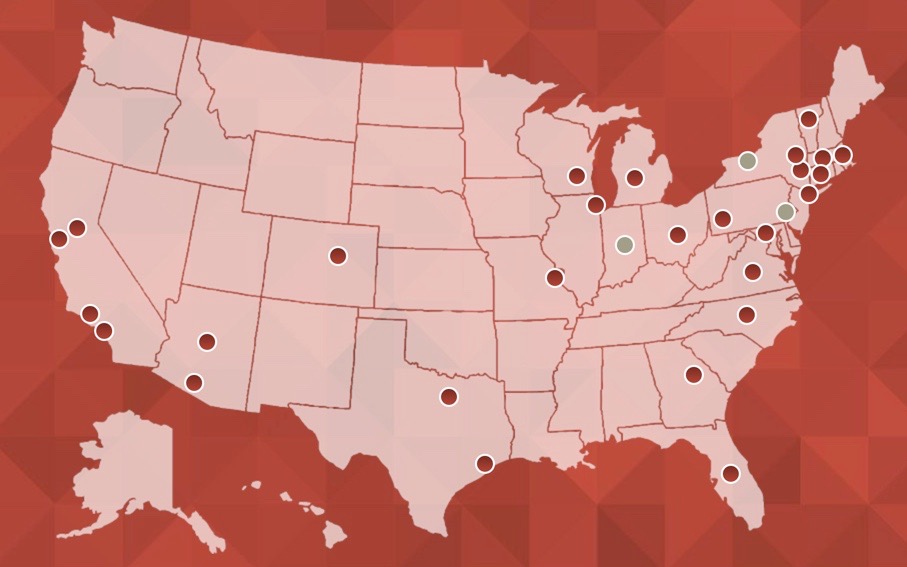EFA Chapters Are Spreading the Message

It’s been less than a year since I joined the Editorial Freelancers Association as a full member. My previous guest account had a lot going for it, but membership has enriched my life and my freelance practice more than I envisioned.
With access to about 3,000 EFA members worldwide, I’ve found that somewhere there’s someone who can help when I have a difficult question or need guidance.
For example, two of the most experienced freelancers I’ve met – Katharine O’Moore-Klopf and Elsa Peterson – helped me in a pinch when I needed assistance on a copyright and permissions issue. Elsa’s publication updated in 2020, Copyright and Permissions: What Every Writer and Editor Should Know, is available through the EFA’s online bookstore. Katharine is author of an onscreen booklet entitled Getting Started as a Freelance Copyeditor and her Copyeditors’ Knowledge Base is a great resource for all.
More recently, I joined the EFA Board of Governors as a member-at-large. My fellow Board members graciously allowed me to pursue an interest in chapter development. I work with the Board’s chapter development chair, Akiko Yamagata, and Christina Shideler, EFA’s membership and programs coordinator, to help strengthen our professional organization’s chapter programs.
I’ve talked with EFA members across the United States to learn how our local and regional chapters function and what the EFA can do to strengthen them. Some of our more-established chapters have dozens of EFA members on their contact lists, while newer chapters have begun with as few as 10. Large or small, our 28 chapters deliver member-driven programming. That means meeting topics, professional development events, and social activities are determined based on chapter members’ needs and requests. Our smaller chapters usually have one coordinator, while the larger chapters may have two or three.
Organizing an EFA chapter is a lot like running a small business, which most EFA members can relate to. It takes contact-list maintenance, a schedule of professional-development meeting programs, social activities, an interested clientele and energetic leadership.
Programming should appeal to EFA members of all stripes — medical, science, academic and magazine writers and editors in addition to authors and editors of all genres; and translators, indexers, proofreaders, designers, photographers and a host of others.
“We are definitely reaching new people,” EFA member Janet Long told me recently. Janet and her co-coordinators Maria Alonzo and Linda Ruggeri lead the Los Angeles chapter, which has 143 freelancers on its email contact list. Janet uses MailChimp, an integrated marketing platform for small businesses, to manage the chapter list.
The Los Angeles chapter recently held an informative presentation on permissions, followed by two breakout sessions. One breakout was on academic editing and the other was about fiction editing. Chapter members brought their questions and expertise to the sessions.
“We just did a total rebuild of our list,” Janet added, agreeing that contact-list maintenance is essential to having as many members as possible participate in chapter events. The Los Angeles chapter list includes 83 EFA members, including several from San Diego and nearby Orange County, where coordinator Marissa Dunham is rebuilding the local chapter from the ground up.
“We are doing outreach to (17) known EFA members who have not yet engaged, and to (seven) previously engaged members who have not opened recent email,” Janet reports. Thirty-three Southern California members signed up to attend the recent presentation on permissions, with 20 appearing at the meeting. That’s an attendance rate of 14 percent, which is about average for some of our chapters. Janet says she plans to write a recap of the meeting, then post it on the chapter’s page on the EFA’s website to engage people who couldn’t attend.
For most of our chapters, the pandemic has proven an unexpected bonus for growth. With encouragement from public health officials to practice social distancing, the EFA has suspended in-person chapter meetings and moved events online. This has proven a benefit for the growth of EFA chapters because some of our geographic areas – like Florida, Georgia and North Carolina – span hundreds of miles. Using online tools including Skype and Zoom, chapter members can attend meetings without leaving home.
“We are limiting our Zoom meetings to current EFA members,” Janet said of the Los Angeles chapter. “We feel that EFA resources paid for with members’ dues can be justifiably reserved. We will keep our non-EFA members informed and engaged, and we hope they will be motivated to join.”
Los Angeles isn’t the only chapter with solid professional-development programming. There are many others.
In September, our Georgia chapter held a program – organized by co-coordinators Christi Martin and Mari Ann Stefanelli – on using time-saving macros in Microsoft Excel. EFA’s Florida chapter, with leadership from co-coordinators Karina Cadora and Lisa Haiss, is putting together a meeting on running a freelance editing business.
“The Boston chapter’s (recent) virtual meeting on LGBTQIA+ language [organized by Krysia Wazny McClain and Indu Shanmugam] was well timed,” EFA member Karen Brogno, a volunteer with our organization’s Twitter program, wrote in a recent report shared with the EFA’s Board of Governors. Karen also pointed out how chapters can push the organization forward, noting, “It speaks well to actual work happening at local levels that may be out ahead on some issues.”
David Stacks
Member at Large
EFA Board of Governors
David is senior editor with Stacks Editing, a four-person family business specializing in doctoral dissertations, indexing, novels, and book pagination and cover design. He lives in Augusta, GA, USA, and can be reached at editing@stacksediting.com.

